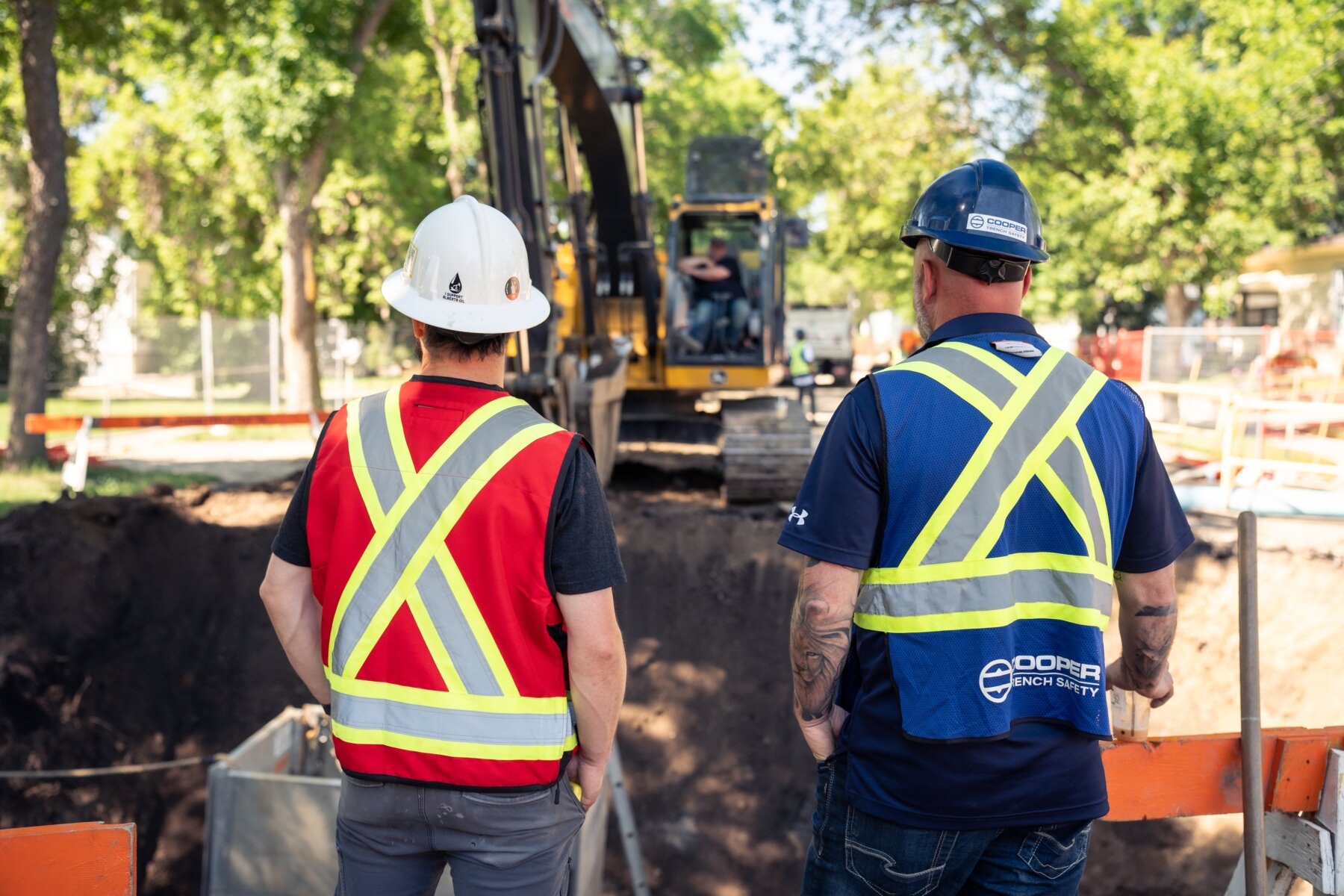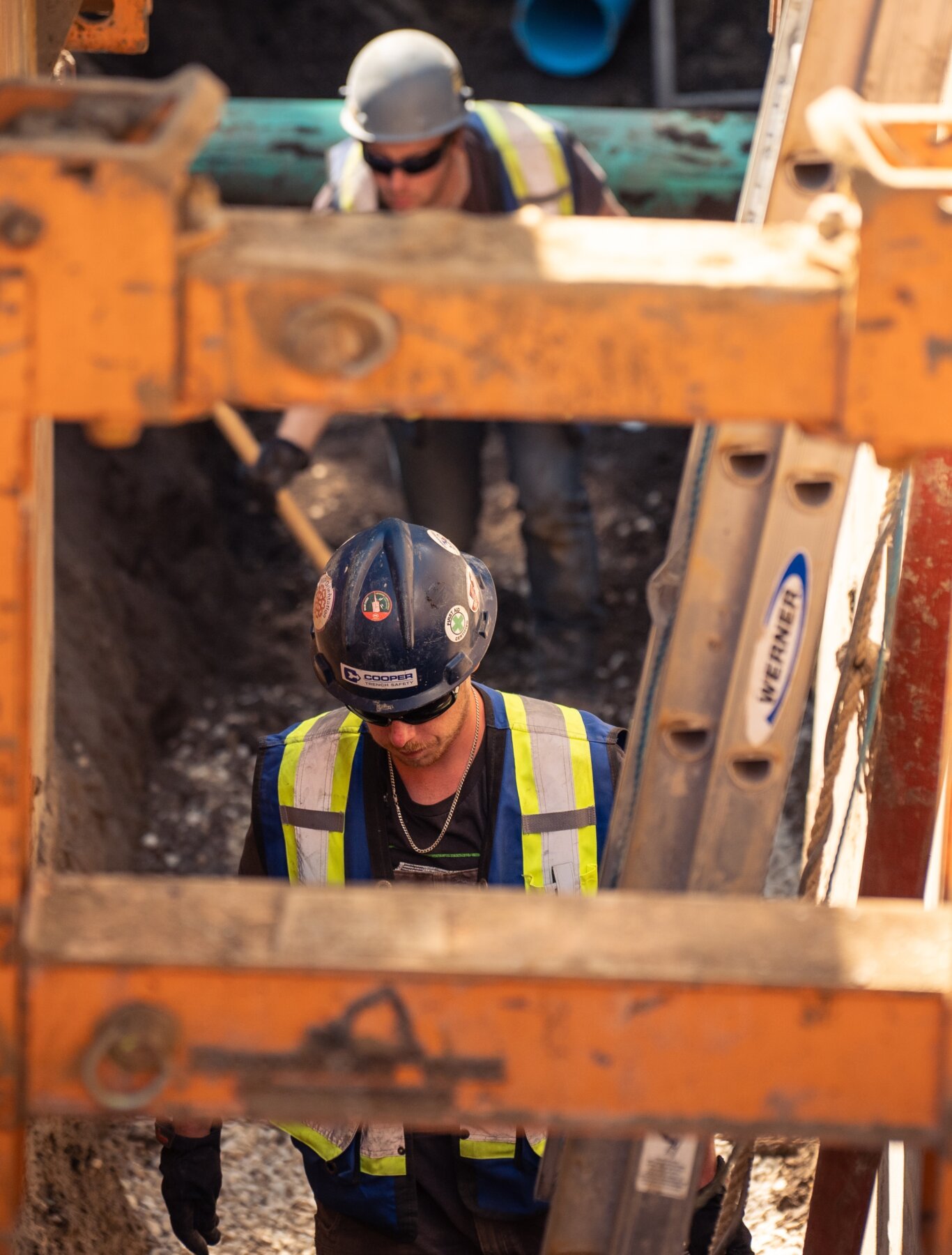Q&A: Justin Wharton on trends dominating Canada’s west
Cooper Equipment Rentals’ Director – Canada West shares his thoughts on construction’s biggest challenges and what lays ahead.

From turning wrenches as a young heavy-duty mechanic to leading the Western Canadian operations of one of the country’s largest rental providers, Justin Wharton’s career has been shaped by a deep passion for the equipment rental industry. Now Director of Operations – Canada West at Cooper Equipment Rentals, he has overseen remarkable growth in the region while helping contractors adapt to evolving challenges—from technology adoption and safety demands to labour shortages and trade uncertainty. In this Q&A with SiteNews, Wharton reflects on his journey, the trends shaping construction, and how Cooper is supporting customers, workers, and communities across Western Canada.
SiteNews:Tell me a bit about how you found yourself in the construction sector and equipment rentals. Is this where you thought your career would take you?
Justin Wharton: I started out as a heavy-duty mechanic and, by the time I was 22, was a service manager for a local rental company. A few years later, I built and sold a business in the automotive sector, but I knew I wanted to get back to the rental industry – it’s where I’d always felt the strongest pull. That path led me to co-found Alberta Lift, a rental company specializing in aerial equipment, serving southern Alberta.
In 2017, we were acquired by Cooper Equipment Rentals. It felt like a natural fit. Our approach to customer service and company values really aligned, which was something that mattered a lot to us when looking for a partner.
After the acquisition, I stayed on to help grow Cooper’s presence in Western Canada. Back then, we only had 11 or 12 branches in the region. Today, we’ve grown to 23 and we’re still expanding. The goal is to continue increasing our reach, improve equipment availability, and offer even more flexibility and support for customers throughout Alberta and across Western Canada.
You have been with Cooper Equipment Rentals for more than eight years, focusing on the company’s western operations. What sort of trends have you seen evolve over those years?
Today’s industry is shifting toward efficiency and intelligence. Leaders are looking for innovative ways to optimize budgets and make strategic decisions. With tariffs always on the horizon, building resilience and foresight has never been more critical.
One of the biggest shifts I’ve seen over the years is in technology. It’s not just about how far the tech itself has come, but how we’re actually using the data from our equipment. It’s opening doors we wouldn’t have imagined before. Data-driven insights are becoming a must-have for our customers.
As rental providers, we’ve come a long way in figuring out what information really matters and how it can help our customer’s business – whether it’s improving jobsite efficiency, winning more bids, hitting deadlines, or creating safer work environments. But it’s not without its challenges. Keeping that data accurate, complete, and up to date is a big task across the industry.

Another major trend we’re seeing is growth in the rental equipment market overall. More contractors are realizing the benefits of renting equipment for specific projects. It gives them the flexibility they need without the commitment and cost of owning equipment. Our specialty divisions like heating, pump & power, and trench safety have been growing too. We’ve now got 3 stand alone climate branches in Western Canada, and more and more customers are turning to our team for help to plan jobs, stay compliant, and keep their crew safe.
What are the biggest issues impacting your customers right now?
Our Western Canada customers are no strangers to adversity. Just as the industry began to recover from supply chain disruptions, labour shortages, and productivity challenges brought on by COVID … a whole new set of pressures have emerged. This is the reality of doing business today – it demands strength, resilience, and adaptability from the whole industry. Of course the growing uncertainty around tariffs and trade relations are making everyone uneasy. This isn’t just a concern in Western Canada – it’s being felt nationwide. These tensions are causing disruptions across supply chains and we’re seeing some customers delay projects. Safety is also top of mind for all our customers. Recent accidents on jobsites across Alberta have put a spotlight on safety practices and promoted a push for more stringent regulations. Our customers are actively seeking support and solutions to ensure the safety of their workers is the number one priority.
Cooper Equipment Rentals has been adamant about focusing on building up local communities and supporting local businesses, especially Indigenous ones. What are some ways Cooper is doing this in Western Canada?
We’re proud to partner with a number of Indigenous-owned businesses across Canada. For us, it’s about so much more than just checking a box and sharing revenue. We want to build long term relationships and actually make an impact in the communities – through employment, B2B partnerships, and broader economic prosperity.
This approach really reflects our values – it just makes sense. It’s the right thing to do, and it’s smart business. We’ve seen how job creation can make a big difference in Indigenous communities, especially for young people who want to stay close to home instead of having to move to bigger cities. We’re also working on scholarships and collaborating with recruiters to help increase Indigenous representation within our company and the wider industry. In Kamloops, our branch is located on the traditional, unceded territory of the Tk’emlúps te Secwépemc. While this location came to us through an acquisition, its presence has underscored the importance of understanding what it means to operate on Indigenous lands and the responsibility that comes with it.
Our focus is on listening, showing up, and building trust with communities. To support this commitment, we’re currently developing our Canada-wide Reconciliation Action Plan, which includes specific calls to action for the construction industry. It’s going to guide our efforts in 2025 and beyond and help us stay focused on doing things the right way.
Labour has long been a challenge for the construction sector. How has this impacted your operations and what strategies have been successful for you when it comes to filling key roles?
The labour market is tough right now. Everyone’s feeling the pressure. If we want to build a workforce that’s ready for the future, we’ve got to invest in training, development, and keeping good people around for the long haul.
That means more than just filling roles. It’s about building skills, keeping workers safe, and giving folks real opportunities to grow. When we focus on those things, we start to close the talent gap and create teams that are more capable and flexible.
But attracting talent is only half the battle. To keep the right people around, the industry needs to work on building the right culture – one built on open communication, regular feedback, good coaching, mentorship, and showing people that there’s a real career path ahead. People need to feel supported if we want them to stick around.
At Cooper, we’ve leaned into foreign worker programs to help fill some of those gaps, and in many of our branches, it’s worked really well. We’ve brought in skilled labour from overseas, and it’s been one of our most successful strategies.
That said, not every market is the same. Downtown Vancouver is one of the hardest places to recruit. The cost of housing is so high, it makes it incredibly difficult to attract and keep workers in the area. It’s a big challenge, and one we’re still working to solve.
At the end of the day, every worker should go home to their family, safe and sound. What safety issues have you seen in your market and what steps is Cooper Equipment Rentals taking to ensure new workers feel safe when they decide to enter the industry?
Construction safety has come a long way over the past couple of decades. We’ve seen major improvements in regulations, equipment, and training – but there’s still work to do. One of the biggest challenges the industry still faces is breaking away from that old “tough guy” mentality. If we’re serious about protecting people, we need to keep pushing for a culture shift. Cooper continues to grow because we’re committed to helping our customers stay safe and compliant. Internally, we run team based reward programs that highlight great safety performance, and our “Take 10” initiative reminds workers to pause and assess their surroundings before starting any task. We’ve found taking just 10 seconds can make all the difference.

We’re also leveraging tech – especially when it comes to onboarding new team members and managing safety programs. Tools like fleet monitoring and digital compliance tracking are helping us make smarter and more proactive decisions.
Looking ahead, we expect to see tighter enforcement of safety bylaws at both municipal and provincial levels. Recent trench accidents have drawn media attention and put the spotlight back on our industry. That pressure is pushing everyone to step up, and stricter enforcement is likely on the horizon. If we want a strong, sustainable construction industry in Canada, safety has to be a top priority. We can’t thrive without it. It’s on all of us – companies, workers, and government to work together and make sure safety is a top priority.
Builders are often asked to do more with less. What are some ways that the industry can boost productivity and what are some of the biggest barriers to getting projects completed, particularly when it comes to housing?
If we want to move the needle on productivity, we’ve got to tackle the bigger roadblocks: labour shortages, safety, zoning delays, and approval processes that take way too long. Looking ahead, there’s reason to be optimistic. Both 2025 and 2026 are shaping up to be strong years for infrastructure investment. We’re already seeing signs of momentum on government-led projects like LRT lines, hospitals, data centres, and energy facilities – projects that create steady demand and long-term stability for the whole sector.
One big development to watch is the new Building Canada Act (Bill C-5). It could be a real game changer. The “one project, one review” concept aims to simplify and speed up the approval process for national projects by cutting down on overlapping reviews between federal and provincial governments. If it works as intended, it’ll mean faster, more predictable timelines, less red tape, and more investment flowing into the projects that matter.
How has the escalating trade war impacted Cooper Equipment Rentals and its western customers and what are some ways the industry can insulate itself against these issues?
Canada can’t afford to keep leaning so heavily on one market. Just as we saw in the early days of the pandemic, uncertainty with the U.S. means projects can slow, contracts can pause, and confidence can waver. For our customers, that creates real pressure. At Cooper, our role is to stand beside our customers and help them navigate whatever comes next. But we can’t just react – we need to build for the long term. For us, that’s meant doubling down on Canadian suppliers and investing in strong, lasting relationships here at home. Manufacturers like Skyjack—A Canadian company—are proof that when we spend locally, we keep value in our own economy. We’ve also been working closely with government leaders in B.C., Alberta, and across the country to ensure future infrastructure spending supports Canadian businesses, strengthens supply chains, and creates durable local jobs.
If there’s one lesson we’d share with the industry, it’s this: know where your money’s going. Not every company that calls itself Canadian truly is. Now’s the time to shorten supply chains, rethink contracts, and build partnerships that back Canadian workers and businesses. The road ahead won’t be easy, but the opportunity is right in front of us. We already have the people, the resources, and the expertise. The challenge—and the opportunity—is to picture a future where we rely less on others and more on ourselves, then put in the work to build it.
What is the best part of your job and why?
For me, it’s having the freedom to make decisions that really reflect the needs of our customers here in Western Canada. I grew up in the B.C. interior, so I understand the unique challenges this region faces. Even though Cooper is based in Ontario, they get that every market is different and they trust us to do what makes sense locally.
But honestly, what I enjoy most is helping people. It’s not just about renting out equipment – it’s about supporting customers as they build their businesses, grow their teams, and invest in their communities. That kind of impact is really rewarding. And being able to do all of this at a 100% Canadian-owned company….that just makes it even better.
